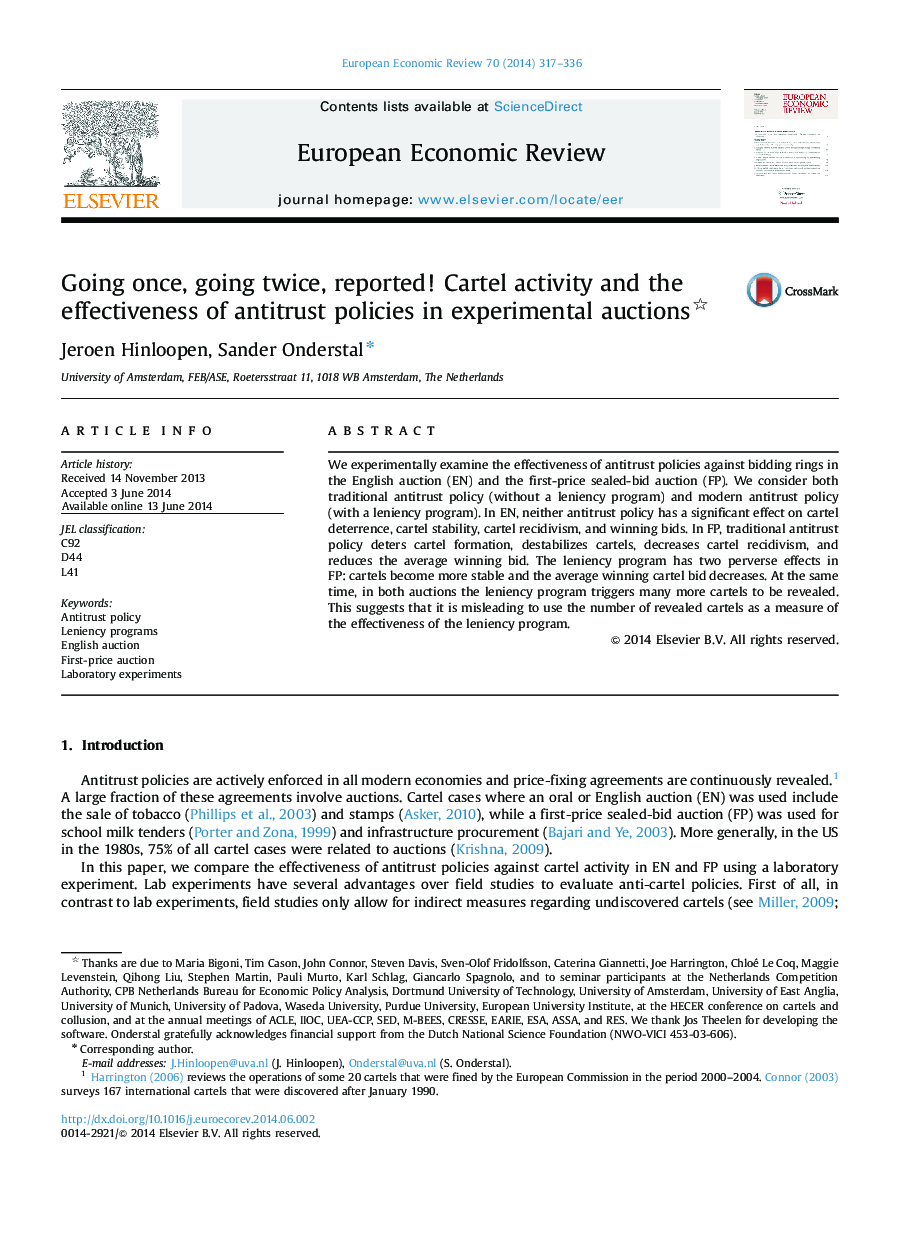| Article ID | Journal | Published Year | Pages | File Type |
|---|---|---|---|---|
| 5066720 | European Economic Review | 2014 | 20 Pages |
â¢We experimentally study the effectiveness of antitrust policies against bidding rings.â¢We consider antitrust policy both with and without leniency program.â¢In the English auction, neither antitrust policy is significantly effective.â¢In the first-price sealed-bid auction, we find ambiguous effects of antitrust policies.â¢A leniency program has perverse effects in the first-price sealed-bid auction.
We experimentally examine the effectiveness of antitrust policies against bidding rings in the English auction (EN) and the first-price sealed-bid auction (FP). We consider both traditional antitrust policy (without a leniency program) and modern antitrust policy (with a leniency program). In EN, neither antitrust policy has a significant effect on cartel deterrence, cartel stability, cartel recidivism, and winning bids. In FP, traditional antitrust policy deters cartel formation, destabilizes cartels, decreases cartel recidivism, and reduces the average winning bid. The leniency program has two perverse effects in FP: cartels become more stable and the average winning cartel bid decreases. At the same time, in both auctions the leniency program triggers many more cartels to be revealed. This suggests that it is misleading to use the number of revealed cartels as a measure of the effectiveness of the leniency program.
